Palestinian Women Can!
Posted in: Programs
“I was forced to become the primary breadwinner for my family after my husband and I divorced. I have had to stand for myself and support my four children. So I understand these women and the many challenges they face.”
– Nariman Othman
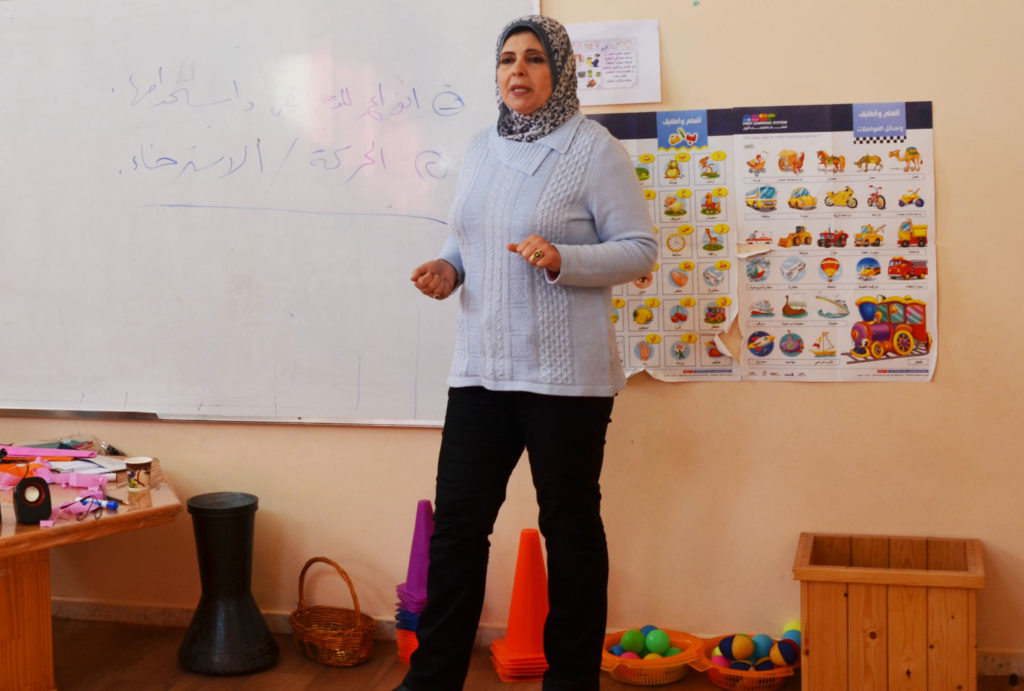

I am working as a project coordinator, leading implementation in the field of Anera’s Women Can program, funded by Islamic Relief USA. Women Can provides material assistance, training and mentoring to women launching small enterprises in the West Bank.
My work on this comes from my heart. I conduct surveys of women we are considering for the program, and facilitate the delivery of equipment and materials for the women’s initiatives. I also facilitate communications with the local village councils, the Ministry of Social Development and our local partners and helps draft reports on the program.
In this program we want to support women-headed households, especially women responsible for providing for orphans, disabled family members, larger families and families with very low monthly income. The women’s employment rate in Palestine is one of the lowest in the region. The Women Can program will help to change that by focusing on enabling economic independence for women.
Surveys & Trainings
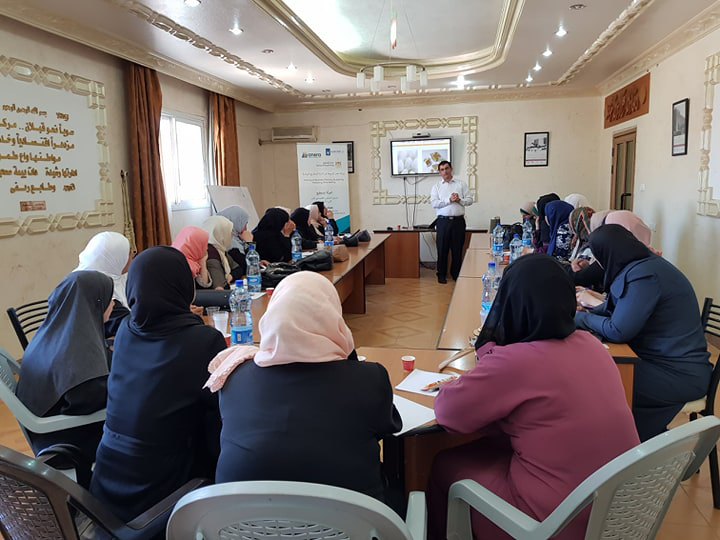

In implementing the Women Can project, the Anera team worked with the Ministry of Social Development and the local councils and local civil society to identify lists of potential participants.
After we signed an agreement with the Ministry, I started conducting visits with potential participants to assess if they met our selection criteria and to help them determine the best small enterprise to pursue. If someone is a good fit, we arrange for her to attend a training on how to start new businesses and develop existing ones.
We visit these women in their own houses. Sometimes they have no idea what to do and where to start. Through extended conversations, their minds open and they begin to generate ideas on projects they can start.
I begin by asking them about what is going on in their lives and what they want to accomplish. Each woman has her own project idea appropriate to her circumstances, interests and capabilities. I am fortunate to have a background in sociology and psychology which is useful in these conversations, and I use that to relate to these women. I have learned a lot from these visits about women in our culture and the challenges they face.
Some of the women are only in their late 20s. They are young and unexpectedly alone after the loss of their husbands through divorce or death. It isn’t easy to be a single caregiver while still so young. Most of the widows’ husbands died from cancer. Some of them are still traumatized from grief. Even when sitting directly across from them they seem to not be with us, as if they are in another world.
One of the women, Iman, didn’t leave her house for four years after her husband died. These trainings are a kind of psychological treatment in addition to facilitating economic empowerment.
If you see these women before and after the training their personalities have totally changed. This is inspiring us too. The trainings are pushing them a little bit and empowering them a little bit. Give them the support and with their courage they transform.
It’s not just about the economic support – it is about the psychological support. I wish I had had somebody to listen to me and to provide encouragement when I found myself alone with children to care for. Someone to support me psychologically. Both kinds of support are really important for human beings succeed.
In this pilot version of the program we will work with 100 women in Nablus and Qalqilya areas, empowering them to start or develop their own enterprises. To make the process more manageable, we staggered the participants into groups.
We started with the first groups that we identified: 25 women from the Nablus area, and 21 from Qalqilya. We held separate trainings concurrently in late April through early May for the groups in both regions to develop their skills in running a business.
Over the course of four days, the trainings cover project planning, marketing and selling. The curriculum is customized to match each group’s education level. The same training will be repeated with each new group of 20-25 potential participants.
Equipping the Enterprises
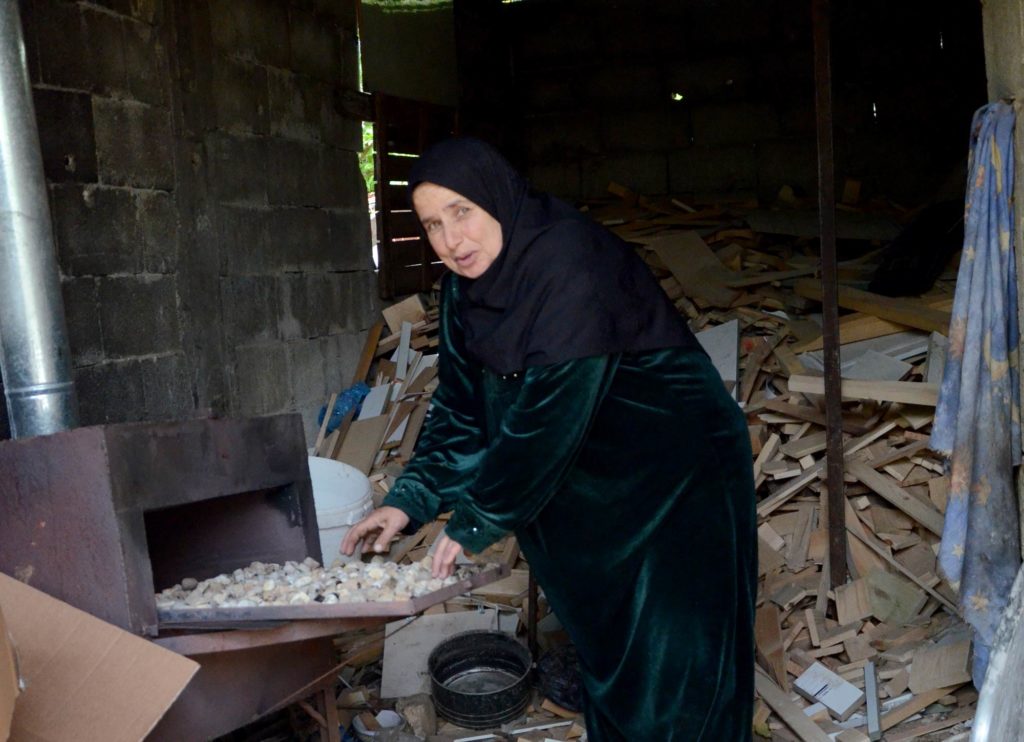

Each woman’s project is different. They range from bakeries and snacks and sweets shops to sheep farms, greenhouses,and sewing projects. Anera will purchase equipment necessary for each enterprise. We are now at the phase where we are beginning to deliver equipment and supplies to the first group of participants.
We have already supplied one woman expanding her barbershop with the necessary tools and furniture to upgrade her salon. Her business is supporting a family of six, including three orphans. The hair clipper was heavily worn and the chair for clients was practically falling apart. Now everything is new and the shop looks attractive.
Two days before the Eid al-Fitr holiday marking the end of Ramadan we went to Qalqilya to give her the materials for her project. She was so excited. She didn’t know how to thank us. The equipment was really crucial for making the barber shop viable. The timing was important too. We knew she would have many potential customers wanting to look their best for Eid.
Mentoring
We are now working on identifying additional groups of women for the program. At the same time, as the first group begins to launch their small businesses we will check-in with them regularly to offer guidance and mentoring to help ensure that their projects are successful.
Some of the women’s projects will take time to earn income. The sheep and goats for instance. The bakeries and patisseries on the other hand will see income immediately. Either way they will have their own project that will support their families without the need of help from somebody else.
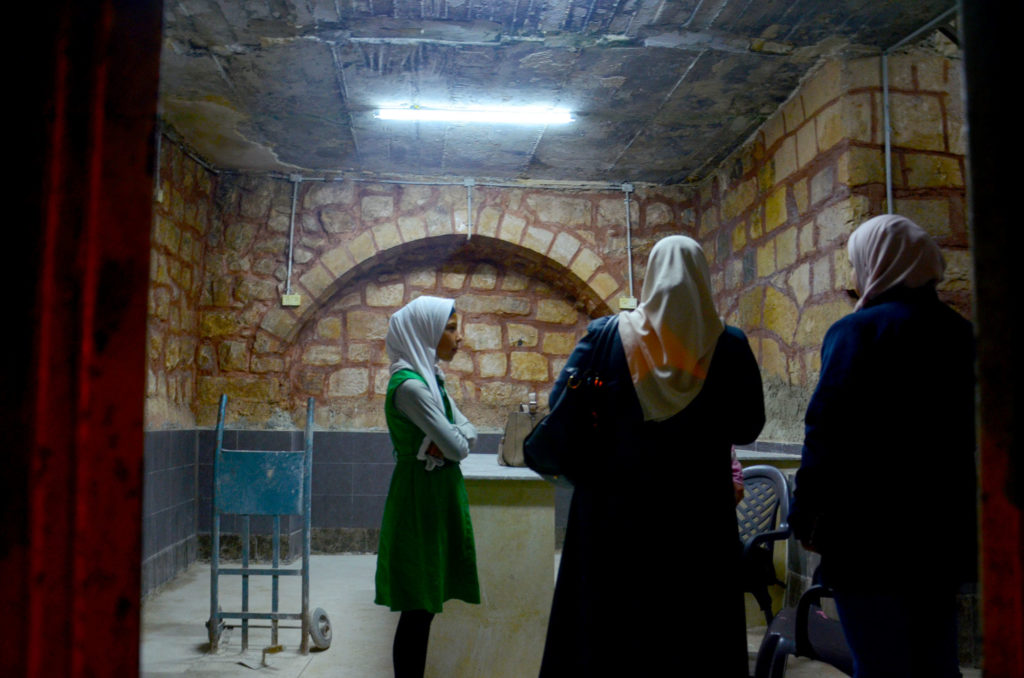

In some cases, I think these women will go on to bigger things. In Nablus, Maysoun will open a bakery which is close to the local schools. In the future I could see her opening a restaurant. I can see her developing her own projects and being quite successful.
The program pilot ends in February 2020. After we complete the year with the women we will hand over ongoing mentorship to the Ministry. As the saying goes, we don’t want to give them fish, we want to teach them how to fish. This is the aim of the project and why it will be sustainable long after we are no longer working with the women.
Reflections on My Visits with These Women
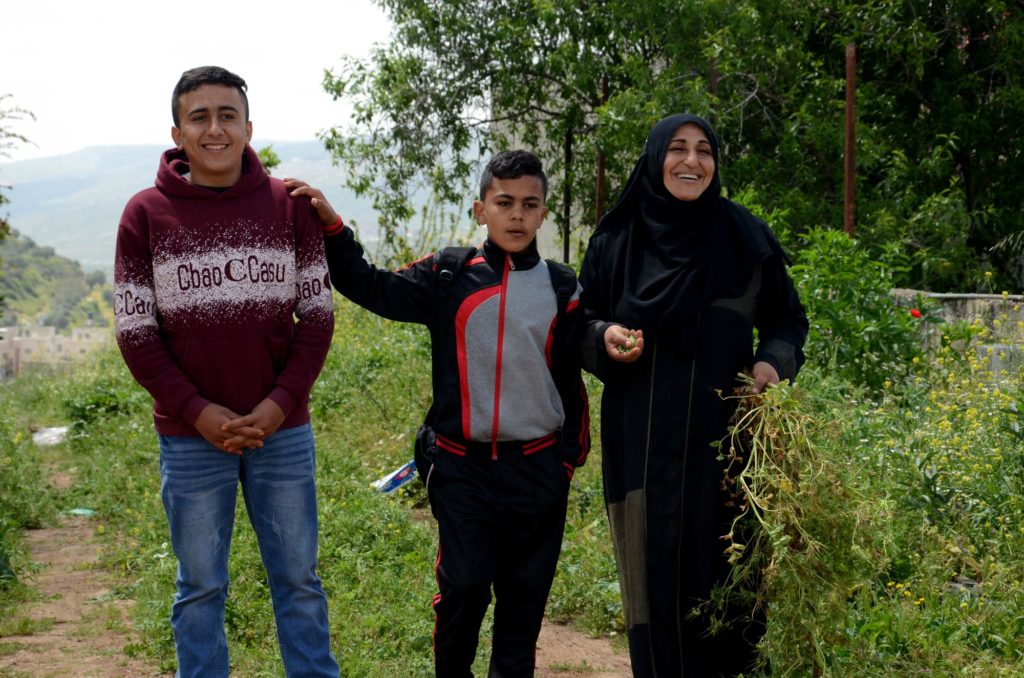

I have met women while working on this program who will stick in my mind and my heart forever. After every visit I come back home with questions and lots of things to consider.
During our visits we see a lot of women with different cultural beliefs. Although I’m a Palestinian woman, it was a surprise for me. Each village is different. I would never have imagined before working on this project how much education levels and cultural attitudes toward women and their place in society could vary from village to village.
In some villages, the local culture is supportive of women, and in others it holds them back. Low levels of education also hold women back. Some women need a lot of support to motivate them and convince them to be proactive and to develop a vision of what they can do.
So one challenge we confront is the time it takes to understand the particular context and circumstances facing each woman. And the women’s different projects all have different needs and these often require lots of extra work. Geography is also a challenge because there are long distances driving between the women’s villages.
There are a lot of field visits that inspire me as a woman. Seeing women who were in tears that are now feel empowered. Each woman has her own story that you could write a book about.
It is a privilege to help these women. They really need support. And they are the lucky ones. There are so many women who need similar assistance. Inshallah this project will succeed and we can expand it to include more women in other marginalized areas.
There have been moments while working on this project that are unforgettable for me. Like our visit to Mariam. She’s in her early 30s and wears a hijab. As we talked with her and filled out our initial survey, tears welled in her eyes.
It was clear that she’s under a lot of pressure. Her in-laws won’t allow her to go outside the home to work. “It is a conservative society,” she told me by way of explanation.
By the end of our conversation she had decided that she would start baking and selling pastries from her house, marketing and selling her products through Facebook. She will make the cakes, biscuits and bread in her kitchen. She really left an impression on me. I am so glad that we could include her in the program.
I think she will do well. There is a strong local market for homemade foods. People here prefer bread from home. Homemade food is considered better than packaged or restaurant food.
I left her house feeling inspired, holding the world in my hands.
OUR BLOG
Related
Part of a series on the impact of the war on all sectors of economic life within Gaza, Anera’s immediate response and plans for the future. Other posts cover housing, education, WASH, health and food production systems. Livelihood Recovery In Gaza, 57 years of occupation and…
InterAction and 50 Member CEOs, some of whom have organizations that work in Gaza, urge President Biden to take decisive and actionable steps to alleviate the humanitarian crisis in Gaza. Detailed within this letter are specific steps and commitments that…
